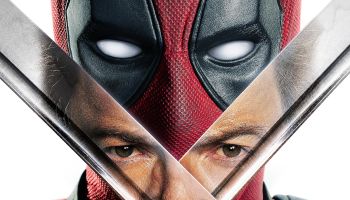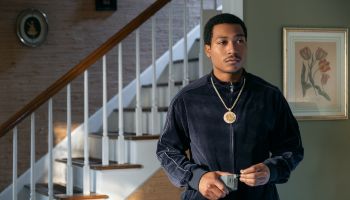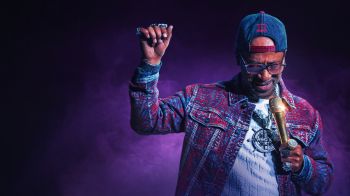In October, Turk, 30, who along with B.G., Juvenile and Lil Wayne, made up the popular late ’90s Cash Money group Hot Boy$, will be coming home from federal prison, after doing more than nine years for weapons violations.
Yesterday, B.G., who is 31, was sentenced to 14 years in federal prison, after pleading guilty to two counts of being a felon in possession of a firearm and one count of conspiracy to obstruct justice.
Since the case is federal, B.G. will have to do 85 percent of the time; he can be eligible to come home in the year 2025.
In the year 2025, B.G. will be 45.
B.G.’s downfall and Turk’s resurgence are just two turns in this spinning-revolving door we call the prison system.
It’s a door that spins constantly in Louisiana.
Considering how small the sample size is, the number of rappers from the Creole State to have had serious trouble with the law is alarming. C-Murder is currently doing life in prison for the murder of a 16-year-old; Lil Boosie, who was recently acquitted of first-degree murder charges, is serving a eight year bid for various drug charges; Mystikal, who is currently doing 90 days in jail for domestic abuse, did six years in prison for sexual assault; former No Limit rapper Mac is doing 30 years for a manslaughter charge he caught in 2001; and superstar Lil Wayne spent most of 2010 in Rikers Island for a gun charge he caught in New York City.
You add those in with the aforementioned Turk and B.G. and it’s hard not to come up with the conclusion that for young, black, successful rappers, Louisiana is the land of the cursed. Or, better yet, Louisiana is cursed land.
The thing that makes these cases notable is the fact that, with the exception of probably B.G. and Turk, these rappers caught their charges at the heights of their career, meaning that not even the addition of success, money, fame and a better living could keep them out of trouble.
I guess the easy path to go is the blame-the-dumb-dumb-rappers route, right? They should know better. And besides, look at the potent music and images they push on the youth, which, in all the cases, is hardcore gangsta rap.
(One of the more interesting aspects of the B.G. and Boosie trials is that, in both aspects, prosecutors used the rappers’ lyrics and music videos as evidence against them.)
And I guess, they are correct in some sense, that these men need to live with the decisions that they make.
But, in a more macro view: Doesn’t this speak more about the state of Louisiana and, more specifically, New Orleans — the state where most of the rappers come from, and the place that currently has the highest per capita murder rate in the country — then the rappers themselves?
I’m not trying to excuse anyone’s behavior. But I can kind of understand how one can be desensitized to drugs, guns or any other type of hood f*ckery coming from the mud these dudes emerged from.
A couple of months ago, I interviewed Obie Trice. One of the topics that came up was the 2005 incident when he was shot in the head in his hometown of Detroit, another city known for its perilous nature.
Obie still lives in Detroit. I asked him, why and how?
He told me it’s where he feels comfortable at. He also told me that when he moves around he moves around “with something to protect himself,” insinuating that he carries a gun.
It’s a shame — success can’t protect you from the streets or the cell.
Let’s play Twitter, folks. I’m @Milkman__Dead
















